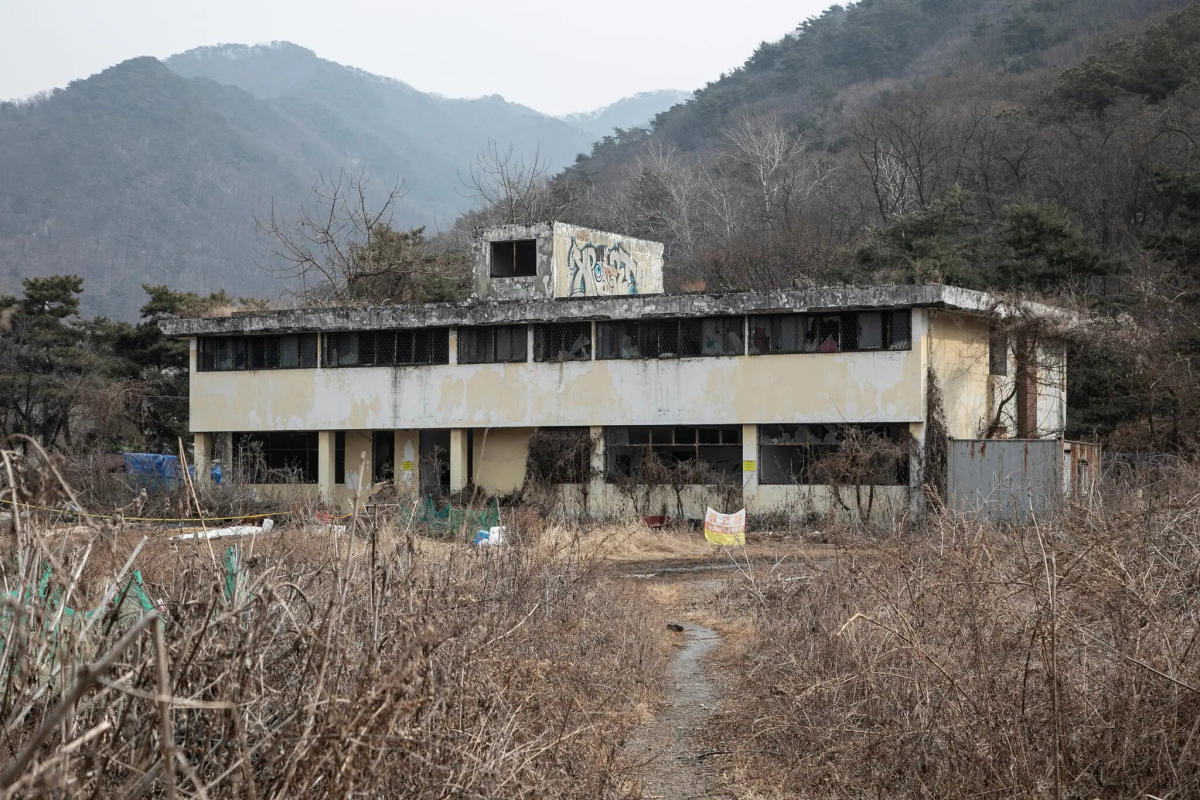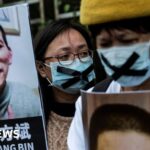Global Courant 2023-05-02 17:38:43
DONGDUCHEON, South Korea – When Cho Soon-ok was 17 in 1977, three men kidnapped her and sold her to a pimp in Dongducheon, a city north of Seoul.
She was about to start high school, but instead of pursuing her dream of becoming a ballerina, she had to go to a nearby club for sex work under the constant supervision of her pimp for the next five years. Her clients: American soldiers.
The euphemism “comfort women” typically describes Korean and other Asian women who were forced into sexual slavery by the Japanese during World War II. But the sexual exploitation of another group of women continued in South Korea long after Japan’s colonial rule ended in 1945 — and it was facilitated by their own government.
Sign up for The New York Times’ The Morning newsletter
There were “special comfort women units” for South Korean soldiers and “comfort stations” for US-led United Nations forces during the Korean War. In the post-war years, many of these women worked in Jijichon, or “camp towns,” built around US military bases.
In September, 100 such women won a historic victory when South Korea’s Supreme Court sought damages for the sexual trauma they suffered. It found the government guilty of “justifying and encouraging” prostitution in camp towns to help South Korea maintain its military alliance with the United States and earn US dollars.
It also blamed the government for the “systematic and violent” way it detained the women and forced them to seek treatment for sexually transmitted diseases.
In interviews with The New York Times, six former South Korean camp town women described how their government used them for political and economic gain before abandoning them. Encouraged by the court’s rulings – which were based on recently unsealed official documents – the victims are now trying to bring their cases to the United States.
“The Americans need to know what some of their soldiers did to us,” said Park Geun-ae, who was sold to a pimp in 1975 at age 16 and said she had endured aggravated beatings and other beatings from soldiers. “Our country held hands with the US in an alliance and we knew their soldiers were here to help us, but that didn’t mean they could do whatever they wanted with us, right?”
Story continues
‘Front-line Warriors in winning dollars’
South Korea’s history of sexual exploitation is not always openly discussed. When a sociologist, Kim Gwi-ok, began reporting on wartime comfort women for the South Korean military in the early 2000s, citing documents from the South Korean military, the government had the documents sealed.
“They feared Japan’s right wing would use it to whitewash its own history of comfort women,” Kim said, referring to historic feuds between Seoul and Tokyo over sexual slavery.
In the aftermath of the Korean War, South Korea lagged behind the North in military and economic power. American troops remained under the UN flag in the south to protect against the north, but South Korea struggled to keep the American boots on the ground.
In 1961, Gyeonggi Province, the densely populated area around Seoul, deemed it “urgent to prepare massive comfort girl provisions to provide comfort to UN troops or to boost their morale,” according to documents submitted to the court in evidence submitted. The local government authorized private clubs to recruit such women to “save budget and earn foreign currency”. It estimated the number of comfort women in its jurisdiction at 10,000 and growing, with 50,000 US troops.
When President Richard Nixon announced plans in 1969 to reduce the number of U.S. troops stationed in South Korea, the administration’s efforts took on greater urgency. The following year, the government reported to parliament that South Korea was making $160 million annually from business arising from the US military presence, including the sex trade. (The country’s total exports were $835 million at the time.)
Some women moved to camp towns to find a living. Others, like Cho, were kidnapped or lured with the promise of work. A sexual act typically costs between $5 and $10 – money that the pimps confiscated. While the dollars did not go directly to the government, they entered the economy, which was hungry for hard currency.
A South Korean newspaper at the time called such women an “illegal, cancerous, necessary evil”. But “these comfort women are also front-line fighters in winning dollars,” it said.
Newcomers were often drugged by their pimps to cope with the embarrassment.
Numbers and nameplates
Society tended to dismiss women as yanggalbo, or “whores to the West,” part of the price of maintaining the U.S. military presence in the country after the war.
“The officials who called us patriots scoffed behind our backs and called us ‘dollar-making machines,'” Park said.
Prostitution was and is illegal in South Korea, but enforcement has been selective and varied over time. Camp towns were established in part to confine the women so they could be more easily monitored, and to prevent prostitution and sex crimes involving American soldiers from spreading to the rest of society. Black markets flourished there as South Koreans clamored for goods smuggled out of the US military after the barter operations, as well as foreign currency.
In 1973, when the U.S. military and South Korean officials met to discuss issues in camp towns, a U.S. military officer said the military’s policy on prostitution was “total suppression,” but “this isn’t done in Korea,” according to declassified US military documents.
Instead, the US military focused on protecting troops from contracting venereal diseases.
The women described being gathered for monthly classes where South Korean officials hailed them as “dollar-earning patriots” while U.S. officers urged them to avoid sexually transmitted diseases. The women had to be tested twice a week; those who tested positive were detained for medical treatment.
Rules established by the U.S. military and South Korean officials required women in camp towns to carry registration and VD test cards and wear numbered badges or name tags, according to unsealed documents and former comfort women.
The U.S. military conducted routine inspections of camp town clubs and kept photo files of the women in base clinics to help infected soldiers identify contacts. Those arrested not only included women who were found to be infected, but also women who were identified as contacts during random inspections or did not have a valid test card.
They were held in facilities with barred windows and heavily dosed with penicillin. The women interviewed by the Times all remembered these places with terror and recalled colleagues collapsing or dying from penicillin shock.
Shame, silence and even death
South Korea has never come to terms with the story of the women in the camp towns, in part because of the steadfast alliance between Seoul and Washington. The subject remains far more taboo than discussions of the women forced into sexual slavery by Japan.
“We were like comfort women to the Japanese army,” Cho said. “They had to take Japanese soldiers and we American GIs.”
None of the government documents unsealed in recent years revealed any evidence that South Korea was directly involved in recruiting women for US troops, unlike many women who were forced into sexual slavery under Japanese occupation.
But unlike the victims of the Japanese army – honored as symbols of Korea’s suffering under colonial rule – these women say they have had to live in shame and silence.
South Koreans began to pay more attention to the issue of sexual exploitation in camp towns after a woman named Yun Geum-i was brutally sexually assaulted and killed by a US soldier in 1992.
Between 1960 and 2004, US soldiers were found guilty of killing 11 sex workers in South Korea, according to a list compiled by the advocacy organization Saewoomtuh.
The US military declined to comment on the Supreme Court ruling or the women’s claims. “We do not condone any conduct that violates South Korean laws, rules or guidelines and have implemented good order and disciplinary measures,” the spokesman, Colonel Isaac Taylor, said by email.
A legacy of pain
Camp towns faded away due to South Korea’s rapid economic development.
Although former camp town women want to take their case to the United States, their legal strategy there is unclear, as is what recourse they can find.
In a psychiatric report that Park submitted as evidence to the South Korean court in 2021, she compared her life to “constantly walking on thin ice” for fear that others would find out about her past. Her arms and thighs show scars from self-inflicted wounds.
According to the South Korean court ruling, Park and others were each awarded between $2,270 and $5,300, which did little to alleviate their financial distress.
Choi Gwi-ja, 77, fought back tears when she described that she and other women had to endure multiple abortions due to the prejudice against biracial children in South Korea. Her voice trembled as she remembered women who committed suicide after soldiers who took them as common-law wives abandoned them and their children.
She recalled how officials once urged the women, many of them illiterate like her, to earn dollars and promised them free apartments in their old age if they sold their bodies for money in the camp towns. “It was all a hoax,” she said.
circa 2023 The New York Times Company








